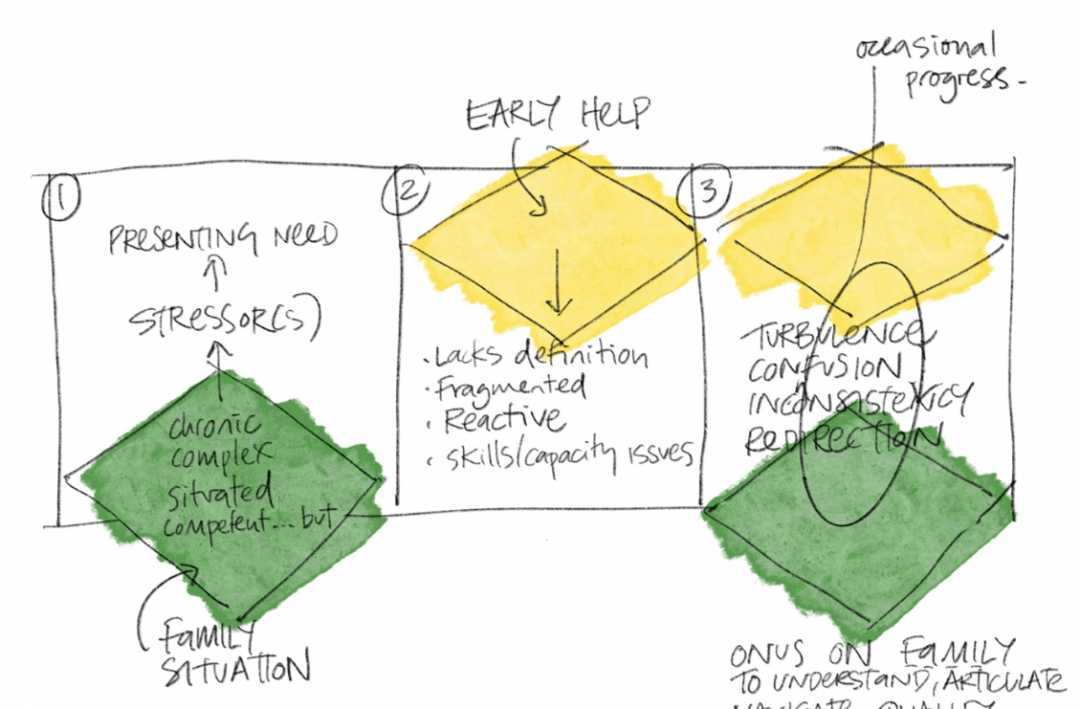‘It was hard to ask for help' – understanding the real experiences of families to inform change
Blog

Martin Gray is Director of Children’s Services at Stockton-on-Tees Borough Council. He is also an actively involved member of our Supporting Children and Families Theme.
In this blog, he emphasises the importance of understanding the real and lived experiences of local families, and the complex challenges they face, when designing strategies for support.
A fantastic blog by Michele Deans from Children North East recently outlined the stark situation facing many families as a result of the COVID-19 pandemic, making a powerful case that disadvantaged families have been affected the most, and will continue to feel the impacts the most, for the longest time, in a region which already has high and rising rates of child poverty.
This parallels with work we have been doing in Stockton-on-Tees, on understanding family experiences of us as their Local Authority, and our services.
We commissioned a consortium led by Durham University to look at family experiences, to understand if the way we work with and support families helps or not. Interestingly the process of getting this work designed, commissioned and completed is a case story in itself!
We wanted to get a sense of what the real issues were for families, not the ones we uncover in our ‘assessment of need’ approach. What is life like, and what could we do to help? We asked them to work with families and with young people.
We also asked them to focus on early help – the support we offer to families which doesn’t include the involvement of a social worker, and which should be supportive, practical, helpful, meaningful and impactful.
What our families said
Families told us it was hard to ask for help, the help provided often felt fragmented with lots of people involved, all doing their bit, but sometimes losing focus. Too often families feel they have to do all the navigating alone. It’s the opposite of how it should be – a genuine trusted relationship which helps now, and builds capacity for the future.
What have we learnt from this?
Well, many things, but the key ones for us, and which will continue to inform our thinking are:
• The complex issues facing families are not solved by piecemeal, single issue responses but by an understanding of complexity and what life is really like, and that we should respond to complexity by simplifying our approach, and simply committing to work on the real issues together
• That our responses should be focused on working with families and unlocking their strengths and assets
• That we need the right people to do this work, those who can build and sustain relationships for how long it takes, not people who are experts in assessment or making referrals
• That we need to continue to talk to families and co-produce approaches and responses.
I don’t think these are earth shattering discoveries. We know this, we just don’t do it well enough.
Whilst there are really good examples of us working with families, there are also too many examples where it doesn’t work well enough to really help families.
Our intention is to continue to build on this work, particularly around having regular ongoing dialogue with families. This is even more important now, given the real and long lasting impacts of COVID-19 on families. We want to refocus our approach so it’s more about working with families, and less about ‘doing for’ or ‘doing to’.
Our aim is to do better with the resources we have, and most importantly, to unlock and release the potential and assets that families themselves have.
I know that the work happening within the Supporting Children and Families theme of the Applied Research Collaboration North East and North Cumbria will enable us to develop this type of thinking even further, and enable us to make a real difference.